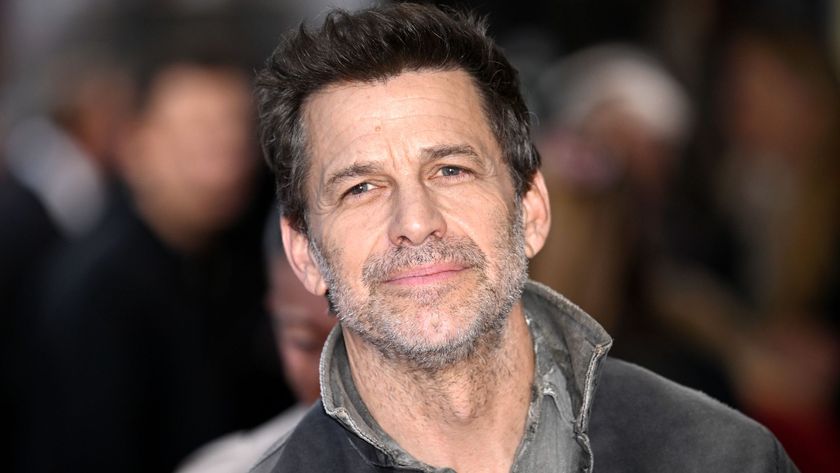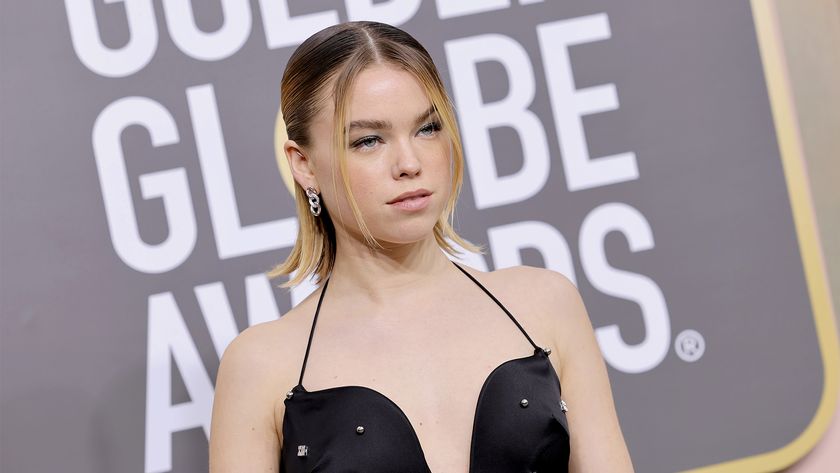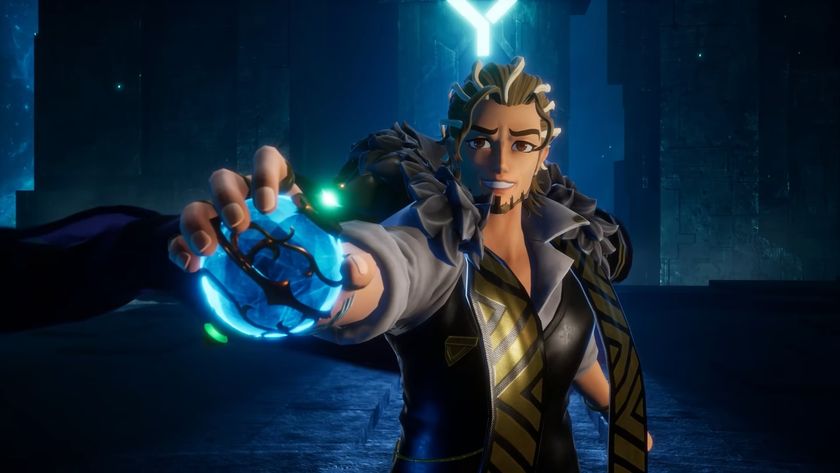Tony Scott: 10 Best Films
We pay tribute to one of our favourite directors...
Unstoppable (2010)
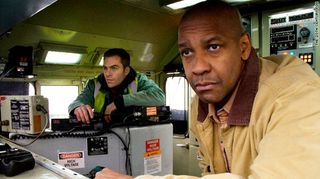
An old-fashioned high-concept movie with a pitch that could be written on the back of a napkin that had been torn in half, Unstoppable is pure cinema.
Yes, it's a runaway train movie - but Scott's direction takes that concept and turns it into the most exciting thing you've ever seen.
Tony's camera hurtles through the air, swooping and circling the action, whilst he utilises every speaker in the cinema to rip you out of your seat, to put you right in the middle of a rumbling, booming action-adventure.
Unstoppable is classic Scott - escapist in the best way, constantly entertaining, and beautiful to witness.
The Last Boy Scout (1991)
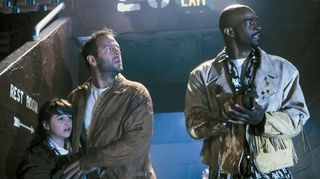
A star coming off the worst flop of his career (Bruce Willis, Hudson Hawk ). A million-dollar script from the writer of Lethal Weapon which attempted to replicate that movie's success, only with more violence and swearing children (Shane Black).
On paper, The Last Boy Scout looked like a major risk. And, when you consider that his last film was Days Of Thunder , Scott could be forgiven for avoiding that risk.
But he bravely went into the breach, and was rewarded with an action-flick that has steadily grown in reputation since its release. Underperforming initially, but finding a home on video, The Last Boy Scout is almost preposterously violent, extremely funny, and highly successful as an action flick.
Sign up for the Total Film Newsletter
Bringing all the latest movie news, features, and reviews to your inbox
It rescued Bruce Willis' reputation, paving the way for his Pulp Fiction rebirth. And it was partially responsible for True Romance 's existence too. Tarantino hung around with one of the production assistants on the set of Scout , which is how his True Romance and Reservoir Dogs scripts found their way into Scott's possession.
For that reason alone, we should be grateful it exists.
Beverly Hills Cop 2 (1987)
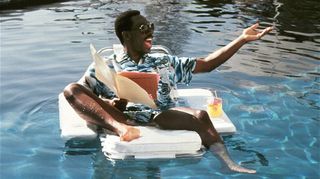
In 1987 Eddie Murphy was the biggest star in the world.
He had a major role in Saturday Night Live , a stadium-filling stand-up career, and - yes - music albums.
But Murphy's run of hugely successful films - including huge box office hit Beverly Hills Cop - was most responsible for his house-hold name status, despite the fact the majority contained more f-words than Tarantino holding a stubbed toe.
But Beverly Hills Cop had originally been written for Sylvester Stallone, and the sequel was created to be the star vehicle to end all star vehicles.
And it was into this intimidating arena that Scott stepped, with only the disappointing failure of The Hunger and the surprise success of Top Gun to his name.
He openly admits that he was initially terrified by Murphy's success and influence, but the mere fact that he was able to implement his distinctive style to the movie - say what you like about Beverly Hills Cop 2 , but it is resolutely a Tony Scott film - makes this a significant entry on his CV.
And, apart from anything else, we wore out our Beverly Hills Cop 2 VHS tape when we were kids, watching it over and over again. That's got to stand for something, too.
The Hunger (1983)
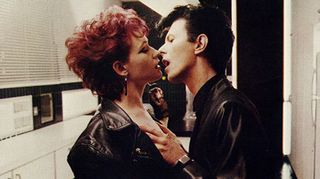
The Hunger crashed so badly on its release, Scott wasn't sure if he'd ever be allowed to direct again.
But watching it again now, it's easy to see why its gained such a fierce cult following in the years since.
Its mixture of gothic and glamour creates a strange, powerful atmosphere, which is populated by the oddest cast this side of a David Lynch film.
A film that mixes quirky performances from David Bowie, Catherine Deneuve, Susan Sarandon, and Dan Hedaya, finding time for a first feature credit for Willem Dafoe (2nd Phone Booth Youth), was never going to be a mainstream hit, but the seeds of Scott's career can be found here, making it a worthy watch.
Deja Vu (2006)
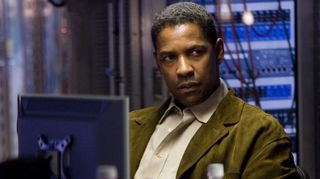
One of the most frequent criticisms of Tony Scott's work is that he favours style over substance.
We'd argue that almost every single one of his films has an equal mixture of both, and we'd prove it by screening Deja Vu and True Romance back to back.
Both had potential to be stylistically overwrought - True Romance was originally written with Pulp Fiction 's chopped-up narrative, Scott dutifully edited it sequentially because he felt it served the audience better that way - and both were rescued by Scott's instincts.
In the hands of a lesser director, Deja Vu would have been a cheesy SF spectacular. But Scott brings weight to the time-travel narrative with grit and realism that adds eeriness and beauty to the finished picture.
It's one of several collaborations with Washington: Tony and Denzel combining once again to intense effect.
Man On Fire (2004)
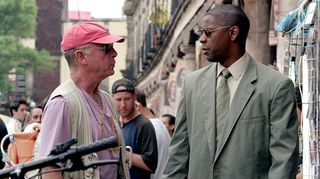
Once again, Scott takes a tired concept - the kidnap/revenge thriller - and electrifies it, making scenes we've seen several times before (a phone-tapped conversation here, a messed-up ransom drop there) as edge-of-the-seat as the first time we saw a dinosaur in Jurassic Park .
And it's impossible to discuss Man On Fire without mentioning Denzel Washington's towering turn. It's only his second performance for Scott, making this the Taxi Driver of their collaboration.
Which is actually fairly fitting, because Man On Fire is essentially that film's third act stretched out to feature length.
It's highly underrated, and definitely worth a revisit.
Enemy Of The State (1998)
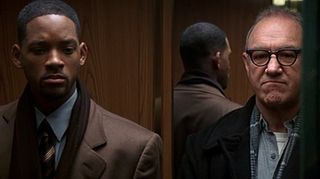
Scott's fifth film with Jerry Bruckheimer is typically big, brash and booming, but the action never overwhelms the acting, with both Will Smith and Gene Hackman on stunning form.
And that's one of Scott's key talents, one that can be overlooked: he was brilliant at collaborating with stars - inspiring them when necessary, and simply stepping out of the way of their performance when he wasn't needed.
On the page, Enemy Of The State is a b-movie at best.
But Scott's work with his cast, and his devotion to spectacle, elevates it to entertainment of the highest order.
Crimson Tide (1995)
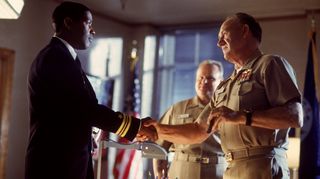
Foreboding and compulsive, propelled by a near-constant tension, Crimson Tide is a superb picture.
It's a war movie in which the most exciting explosions come from the hearts of men pushed to their limit, barking words from a script by multiple writers, that feels like the work of an auteur.
And, like so many other films on this list, it contains mesmerising central performances.
As warring Navy officers, Denzel Washington and Gene Hackman are arguably at their most compelling here.
And, considering their respective CVs, that's quite a claim.
Top Gun (1986)
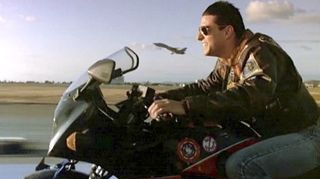
It's arguably Scott's most iconic film. So it seems strange to remember that he was actually fired from it after the first rushes reached the studio. Then again, twice more, after he was rehired.
But it makes sense. Scott's instincts were initially against doing the film. “When the guys first offered me Top Gun,” he said, “I couldn’t quite see it.”
When he came to it, Cruise was already attached, and producers Simpson and Bruckheimer were pitching it as "Star Wars on earth."
But thank Goose he stayed on board; his visual sense and painter's background combining to create imagery that has been arguably as influential on action cinema as Star Wars was on blockbusters.
And its reputation as a homoerotic classic - fuelled in part by Scott's old pal Quentin Tarantino's Sleep With Me cameo - may not have been intentional, but it always seemed to tickle Scott whenever it was mentioned.
“No, it wasn’t [intentional]. Not at all. But Quentin did that little cameo in that movie Sleep With Me , and it was brilliant. He sent it to me and said, ‘Watch this, and don’t take offence!’” Scott said with a chuckle.
True Romance (1993)
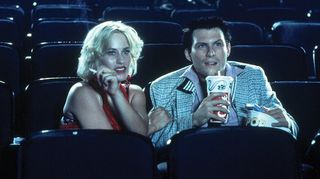
Those of us who bought the Faber & Faber True Romance script book released in the early 90s will remember the moment in Quentin Tarantino's introduction where he admitted that, if he'd directed the movie, he would have killed off Clarence.
Tony Scott, the intro said, made the decision to keep the character alive, to finish his days with his true romance, Alabama.
Tarantino said: "He'd fallen in love with those kids, and wanted them to live."
It's a revealing insight into what made Scott such a great director - he was in touch with the emotions of his audience.
Whether it was how to excite them - Top Gun , Unstoppable - or the instinct to know that if Clarence hadn't made it out of that hotel room, True Romance would have a very different emotional impact, Scott understood how to give people value for the price of a movie ticket.
And he put everything into delivering that value.
Dennis Hopper spoke of working with Scott on Romance : "Tony has this special gun that you fire and flames come out the side. I said, “Tony, you’re not putting that gun right to my head.” He said, “It’s fine, do it to me.” So a crew guy shot him, and he started bleeding. He said, “OK, that won’t work.”
He lived and bled for the movies, but never took himself too seriously.
According to Tom Sizemore: "Tony started every take like this; “Rock’n’roll, motherfuckers! Action!”"
And that's pretty much as decent a summation of the films on this list as any. Rock'n'roll motherfuckers! Action!
Sam Ashurst is a London-based film maker, journalist, and podcast host. He's the director of Frankenstein's Creature, A Little More Flesh + A Little More Flesh 2, and co-hosts the Arrow Podcast. His words have appeared on HuffPost, MSN, The Independent, Yahoo, Cosmopolitan, and many more, as well as of course for us here at 12DOVE.
